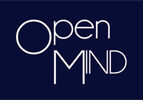 PHILOSOPHY OF MIND
PHILOSOPHY OF MINDA donation of intellectual property
Books on brain research, on philosophy and psychology of mind are expensive, yet at the time of their appearance the publications themselves may already be obsolete. Thus, the Open MIND Project decided to take another path. It provides a compendium of high-quality specialist papers that is freely accessible online. The initiator of this huge venture is Professor Thomas Metzinger of the Department of Philosophy at Johannes Gutenberg University Mainz (JGU).
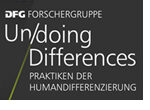 INTERDISCIPLINARY RESEARCH
INTERDISCIPLINARY RESEARCHOf differences and differentiation
People are not simply different; they additionally make distinctions among themselves. At times, skin color is to play a role, then there is faith, nationality, gender. The research unit "Un/doing Differences. Practices in Human Differentiation" investigates the mechanisms that are behind what causes us to make distinctions and what it is that can make these distinctions disappear. A range of different researchers at Johannes Gutenberg University Mainz (JGU) are working hand-in-hand for this purpose – across the boundaries of their own disciplines.
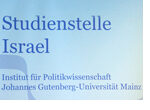 ISRAEL STUDY UNIT
ISRAEL STUDY UNITA small country but major themes
Post-war Germany takes up a very special stance on Israel, though often a rather limited one. The conflict in the Middle East is taking center stage while the shared German-Jewish history always plays an important role. It is the aim of the Israel Study Unit of the Institute of Political Science at Johannes Gutenberg University Mainz (JGU) to make Germans aware of the many other facets of the country. A current project is a major conference entitled "Rapprochement, Change, Perception and Shaping the Future: 50 Years of German-Israeli and Israeli-German Diplomatic Relations."
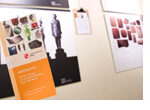 UNIVERSITY COLLECTIONS
UNIVERSITY COLLECTIONSCuneiform tablets, lumps of coal, and a letter written by Brentano
The research collections held by Johannes Gutenberg University Mainz (JGU) are to be exhibited publicly for the first time in Mainz City Hall. The universal exhibition 'VALUABLES' offers insight into a cross section of various subjects and disciplines. It brings together skulls and prophets, medical instruments and minerals, musical instruments and ancient coins and much more.
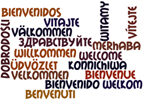 JGU INTERNATIONAL
JGU INTERNATIONALHelp of all kinds
Welcome to Johannes Gutenberg University Mainz! – The sentence is easy to say. Foreign scientists and researchers often have to clear a lot of hurdles before they can feel at home in Germany. The Welcome Center at Johannes Gutenberg University Mainz (JGU) helps them – in every way.
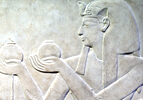 EGYPTOLOGY STUDY COLLECTION
EGYPTOLOGY STUDY COLLECTIONFrom the Holy Water of Horus to Akhenaten’s pot belly
Some 30 exhibits are witness to 3,000 years of history. They tell of gods and pharaohs, of raising poultry, of magic water, and of unusual fashions. The Egyptology Study Collection at Johannes Gutenberg University Mainz (JGU) may be small, but it offers a lot of material for learning and teaching, for discovery and discussion.
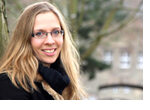 GUTENBERG ALUMNI
GUTENBERG ALUMNINo talk of elitism
Mareike Hachemer has been nominated for the Global Teacher Prize, an annual one million dollar award from the Varkey Foundation to be given to a super-special teacher. The Gutenberg alumna has already made it into the top 50 and is about to enter the final round. Here the 31-year-old discusses her time at the university, the teaching profession, and her students.
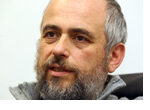 RESEARCH COOPERATION
RESEARCH COOPERATIONNot everything in the universe is symmetrical
Research into fundamental symmetries and a unique nationwide cooperation between Johannes Gutenberg University Mainz (JGU) and the Helmholtz Association have brought Professor Dmitry Budker to Mainz. He will be heading up the Matter Antimatter Symmetry section at the JGU-based Helmholtz Institute Mainz, which collaborates with the GSI Helmholtz Center for Heavy Ion Research in Darmstadt.
 FAMILY SERVICES CENTER
FAMILY SERVICES CENTERMore than just a temporary solution
Looking for a daycare facility for your child? Pregnancy getting in the way of your studies? You have a relative who needs care? In situations like these the Family Services Center at Johannes Gutenberg University Mainz (JGU) is there to help. Stefanie Schmidberger provides advice to students and university employees who, for example, are having problems dealing with the authorities or finding the support services they need. She knows the sort of difficulties people can encounter, knows a way through the tangle of regulations, and can provide valuable aid and assistance.
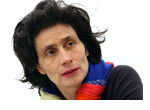 MAINZ ACADEMY OF FINE ARTS
MAINZ ACADEMY OF FINE ARTS"The aim is to have everybody find their own voice"
The Mainz Academy of Fine Arts of Johannes Gutenberg University Mainz (JGU) welcomes an acclaimed artist as a professor in the person of Tamara Grcic. The idea is that the versatility of her work will be reflected in her teaching. In her sculpture class, for instance, Grcic does not plan to lay down hard and fast rules but to allow students sufficient space in which to find their own personal form of artistic expression.
